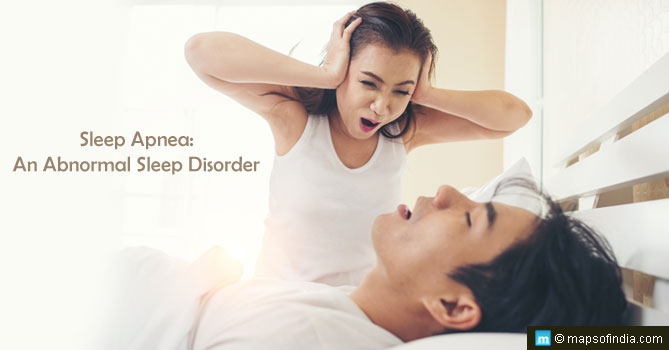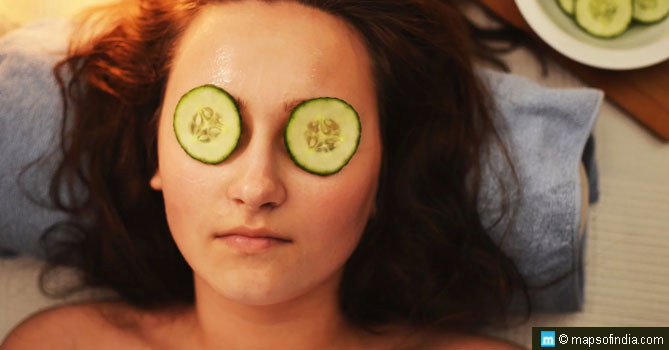What is Sleep Apnea?
Sleep Apnea is also spelt as Sleep Apnoea, is a common but serious sleeping disorder. Here ‘apnea’ stands for “no breath” or “stopping breath”. It means that when a person falls asleep his breathing gets interrupted hundreds of time during the night. But if you have Sleep apnea, we are sure that you might not be aware of these short breathing pauses which are responsible for causing hindrance in your natural sleep rhythm. As all you know is that you don’t feel fresh and energetic for undertaking the task, for the following day.
Types of Sleep Apnea
- Obstructive Sleep Apnea
This is the most common type of apnea. Which is caused due to the softening of tissue in the back of the throat as it relaxes during sleep and is responsible for blocking the airway, which often leads to loud snoring.
- Central Sleep Apnea
This kind of apnea is less common among masses. It involves the central nervous system and occurs when the brain is not able to signal the muscles which helps to control the breath. The people who are acquainted with central sleep apnea rarely snore.
- Complex Sleep Apnea
This is nothing but the combination of obstructive and central sleep apnea.
Visible Signs and Symbols of Sleep Apnea
Sleep apnea is a kind of disorder which might be difficult for you to identify on your own, as symptoms of sleep apnea could only be viewed when you are asleep. But if you want to clarify your doubt then ask your bed or room partner to silently observe your sleeping habits or record them for you. Remember that if you observe pauses while you snore, and if gasping or choking also follows them, then these will act as a major warning sign of sleep apnea.
Warning Signs That You Must Know:
- The chronic and loud sound of snores while you are sleeping
- Gasping, choking or snorting during your sound sleep
- When you pause, while you breathe
- Waking up from a sound sleep due to short of breath
- Feeling of sleepiness and fatigue, during daytime
Some Other Warning Signs are:
- So, if you are waking up with a sore throat or have a dry mouth
- Going for urination frequently during the night might prove to be a warning sign
- Forgetfulness and difficulty in concentrating
- Early morning headaches
- Being restless and insomniac
Hey Folks! Are You Getting Confused Between Sleep Apnea and Snoring?
So before considering simple snoring for sleep apnea you need to know that everyone who snores doesn’t have sleep apnea. The biggest difference one could feel is during the daytime. If you snore while you sleep and next morning you are energetically willing to do your work. This clearly shows that you are saved and sleep apnea in your case doesn’t exist.
What are The Causes of Sleep Apnea?
This is a very common sleeping disorder, any one of us can suffer from it. But the risk of coming across sleep apnea rises when:
- You are an overweight male, with a family background of sleep apnea.
- If you are 50 years or up and you smoke or affected with high blood pressure.
- Could be found in someone with a neck circumference greater than or equal to 15.75 inches.
Some Physicals Traits Leading to Obstructive Sleep Apnea include:
- Deviated septum
- Enlarged tonsils or adenoids
- Receding chin
Treatments Available to Cure Sleep Apnea
If you are diagnosed with sleep apnea and getting scared of it then worry not. Here we have brought self-help treatments for you which would surely help you to cure sleep apnea.
Cure Your Sleep Apnea with These Lifestyle Changes
- Lose Weight
Do you really want to mild or moderate your sleep apnea? Then make sure that you start exercising now. The researchers state that the people who are overweight have extra tissue attached at the back of their throat. This tissue can block the flow of air into the lungs while you are asleep. So, if you will shed your weight then your sleep apnea can be cured easily.
- Stop Smoking
“Smoking is injurious to health” isn’t this an old statement we are hearing from a very early age. But do we really follow it? Probably no. If you want to get rid of sleep apnea, then quit smoking now. As it increases inflammation in our body and is responsible for retaining fluid in the throat and upper airway.
- Make Sure You Give Away Alcohol, Sedatives and Sleeping pills
Avoid their intake especially before bedtime, as they will help the muscles to relax and will possibly interfere when you will breathe.
Bedtime Tips to Prevent Sleep Apnea are:
- Make Sure You Sleep on Your Side
You must know that if you will sleep on your back then your tongue and soft tissues are more likely to obstruct your airway. As per the studies some people suffer from sleep apnea especially when they sleep on their back.
- Prop Up Your Head
So, before you go for sleep make sure that the head of your bed must be elevated by six to four inches, or your body must be elevated from the waist up. You can use a foam wedge or a special cervical pillow to cure sleep apnea.
- Keep Your Nasal Passages Open
Your nasal passages must be open during the night. This can be done by using a nasal dilator, breathing strips and saline spray.
- The Muscles that Keep Your Mouth Closed Must Be Tightened Up
Yes, firstly this seems impossible, but it can be done easily by chewing a piece of gum or holding a pen in between your teeth for about 10 minutes before bedtime until your jaw starts aching.
Throat Exercises
So, if you are tired of trying each exercise then you must go for tongue and throat exercise. This would help you to reduce the severity of sleep apnea by strengthening the muscles in the airway. This includes: –
- Your tongue must be pressed flat against the floor of your mouth. Also, you must brush top and sides with a toothbrush. Make sure these brushing movements must be repeated at least five or three times a day.
- You must gargle twice a day, at least for five minutes.
Treatment Options For Sleep Apnea
So, if you are tired of self-help strategies and planning to visit a sleep doctor then some of the treatments to cure obstructive sleep apnea will be as follows:
- Implants
- Continuous Positive Airflow Pressure (CPAP)
- Dental devices
- Surgery
- Other breathing devices
Before you start with your proper medications you should know that the treatments mentioned above will help you to cure your sleepiness, but not sleep apnea.






